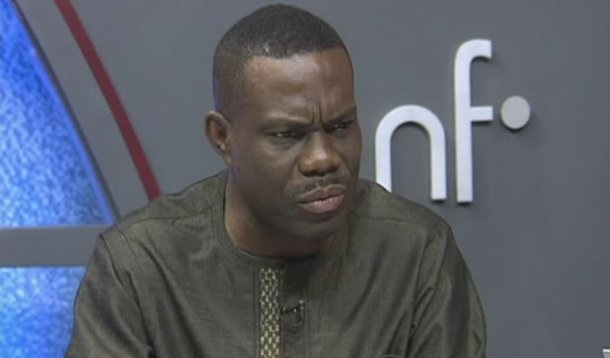A Local Government Expert, Dr Eric Oduro Osae, is calling for a 40 per cent increment in the District Common Funds.
He argues that there is a lack of scientific basis for the current 5 per cent rate proposed by the constitution, which he believes fails to meet development needs.
Speaking on the Super Morning Show on Joy FM, Dr Osae explained that the underperformance of the various assemblies stems from the financial challenges that most are facing.
“I think that if the Common Fund is raised to about 40% of total national revenue it will help because Article 252 of the Constitution sets only the lower limit and not the upper limit,” he said.
His comment comes on the back of assertions by the Greater Accra Regional Minister, Henry Quartey, that most assemblies within the capital are not performing.
During a meeting with some MMDCEs on Tuesday, Mr Quartey expressed disappointment with the state of affairs in the Greater Accra Region.
He also questioned the role of the Assemblies in curbing indiscipline and ensuring development.
But the Local Government expert insists allocating funds based on identified needs will ensure they are used for that purpose and not to address other issues.
“If government is not mobilising enough, then 5% of government revenue will definitely not be enough to finance development. So it is a national conversation that we should have.
"But I have always made a proposal that we should use a scientific base to calculate the development needs of the local government and transfer an amount equal to what they need to develop.
"Because the not-less-than 5% figure that was fixed in the constitution for Common Fund has no scientific basis,” he emphasised.
However, the Member of Parliament for Ho Central, Benjamin Komla Kpodo, disagrees.
He argues that the proposed increment will not yield any impact due to government's lack of desire to decentralise local governance.
“The constitution says a minimum of 5% then during President Kufuor’s time it was raised to 7.5 and then President Mahama continued with it. But when this government came it brought it back to 5% and went ahead to cap it.
"So you see that the desire for a centralized government which often initiates the decentralization process is to keep the money at the centre so they will have control. They do not want the district assemblies to have control over their affairs,” he said.
Meanwhile, the Director of the Institute of Local Government Studies, Nicholas Awortwi, says Metropolitan, Municipal, and District Chief Executives (MMDCEs) will only be accountable to the public when they are elected.
“We have a situation where the Chief Executive who should have the power and be the representative of the people is rather a representative of the central government because the law makes the Chief Executive the representative of the central government and in that case, his allegiance and accountability are all up to the central government.
“If DCEs are elected, they will make themselves more relevant and accountable to the people and will do more than what they are doing now,” he said.
Latest Stories
-
FIFA Club World Cup 2025: Sundowns, Esperance join Al Ahly and Wydad as CAF representatives
3 hours -
CAFCL: Al Ahly set up historic final with ES Tunis
4 hours -
We didn’t sneak out 10 BVDs; they were auctioned as obsolete equipment – EC
7 hours -
King Charles to resume public duties after progress in cancer treatment
8 hours -
Arda Guler scores on first start in La Liga as Madrid beat Real Sociedad
8 hours -
Fatawu Issahaku’s Leicester City secures Premier League promotion after Leeds defeat
8 hours -
Anticipation builds as Junior Speller hosts nationwide auditions
9 hours -
Etse Sikanku: The driver’s mate conundrum
9 hours -
IMF Deputy Chief worried large chunk of Eurobonds is used to service debt
10 hours -
Otumfuo Osei Tutu II celebrates 25 years of peaceful rule on golden stool
10 hours -
We have enough funds to pay accruing benefits; we’ve never missed pension payments since 1991 – SSNIT
10 hours -
Let’s embrace shared vision and propel National Banking College – First Deputy Governor
11 hours -
Liverpool agree compensation deal with Feyenoord for Slot
11 hours -
Ejisu by-election: There’s no evidence of NPP engaging in vote-buying – Ahiagbah
11 hours -
Ejisu by-election: Independent ex-NPP MP’s campaign team warns party against dubious tactics
11 hours

